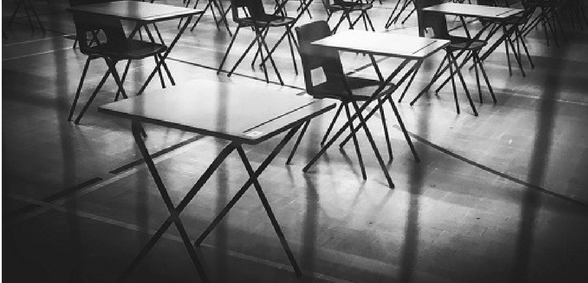
NEU/TES joint survey examines the time students are spending on SAT preparation – concluding that it’s overtaking their lives
Three-in-10 (30%) teachers and headteachers say their school expects children aged six to seven (Year 2) to do SATs revision at home, according to a joint survey by the National Education Union (NEU) and TES.
This increases to more than eight in 10 (82%) schools expecting pupils aged 10 to 11 (Year 6) to revise for their SATs at home.
In a survey of 500 teachers and headteachers in England, almost one in 10 (eight per cent) run revision classes after school for Year 2 children, and more than half (56%) offer them to pupils in Year 6. A further 29% said that Year 6 pupils are offered SATs revision during lunchtimes, leaving children with even less time to have a break from tests.
More than six in 10 (62%) said their school holds mock key stage 1 SATs, meaning time is spent preparing for the tests rather than teaching the curriculum. Three-quarters (74%) of teachers and headteachers said they feel that the preparation for SATs in Year 6 squeezes out other parts of the curriculum, and almost a third (32%) feel this is the case in Year 2.
A Year 2 teacher from Norfolk said: “It feels like so much time is spent on preparation for SATS tests, and then teacher assessment on top of this takes too much teaching time that the children are entitled too. A broad a varied curriculum? Where? How is this even possible?”
A primary school teacher in Wigan said: “SATs become the main focus in Year 6, which takes precedent over everything else. As teachers, we have to remember SATS are not the priority – our children are.”
Anecdotally, a high number of respondents expressed that SATs should be scrapped completely, with some saying they “take the fun out of teaching”, “are a total waste of time and undermine, once again, the professionalism of teachers” and “are a nightmare”.
A key stage 2 teacher in Wiltshire said: “SATs have and always will be simply a tool to grade schools by. They could be used in a less stressful way to assess pupils for the teacher and teachers only. Instead children are still taught to the tests and the rest of the curriculum goes out the window for months. Scrap them and let teachers get on with what they actually signed up to do!”
Education staff believe that SATs are detrimental to teaching across the curriculum, with 64% believing this to be the case for Year 2 and 82% believing it for Year 6.
A key stage 1 teacher from Bristol said: “All other subjects are given, at best, two hours a week, in order to practise SATs and prepare them to pass the test. Our children know little of the wider curriculum as it is not tested.”
Teachers and heads are also increasingly concerned about the effect of SATs on pupils, with 83% saying that SATs in Year 6 have a detrimental effect on pupils’ mental health, and 54% saying SATs in Year 2 mean pupils’ mental health suffers.
A reception teacher from Oldham said: “This is a very stressful time of year for children in Years 2 and 6 – some are reduced to tears by the SATs tests. This is not helping children to love to learn.”
A Year 3 teacher from Northamptonshire said: “So much curriculum time is given to SATs preparation that both students and teachers suffer with stress.”
Teachers and heads also felt that SATs take an even greater toll on their own mental health, with almost nine in 10 (89%) saying they felt Year 6 SATs are detrimental to their own mental health, and 74% felt the same about Year 2 SATs.
A Year 2 teacher from Hampshire said: “The pressure has increased hugely on children and teachers with the advent of the new curriculum and I have had many sleepless nights with anxieties about my own responsibilities to the children in my class in preparation for SATs and for the children’s own well-being.”
Dr Mary Bousted, joint general secretary of the NEU, said: “SATs, whether at Year 2 or Year 6, are damaging to primary education. The government relentlessly tests children from the age of six, and they are told they are failures if they do not meet required standards. This can impact on their self-esteem, which can carry on throughout their schooling and determine the direction of their adult lives.
“We believe there are better ways of assessing children, and better ways of ensuring school accountability. We will continue to campaign with parents and other educational organisations against the accountability and assessment pressures that lead to the labelling of children.”
Don’t forget to follow us on Twitter, like us on Facebook, or connect with us on LinkedIn!

Be the first to comment